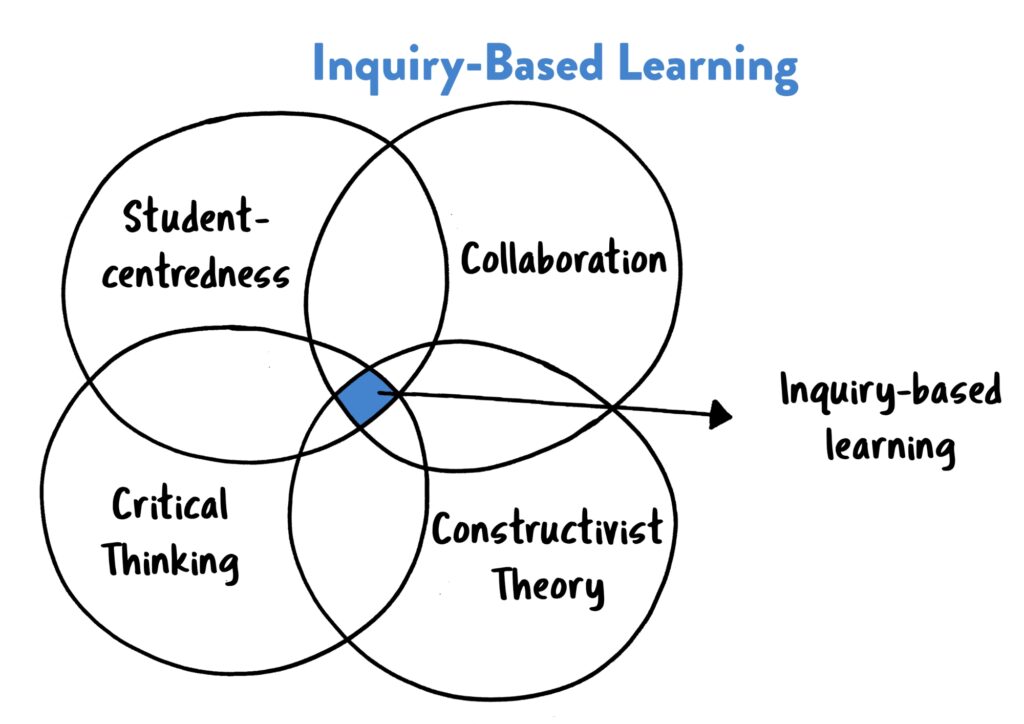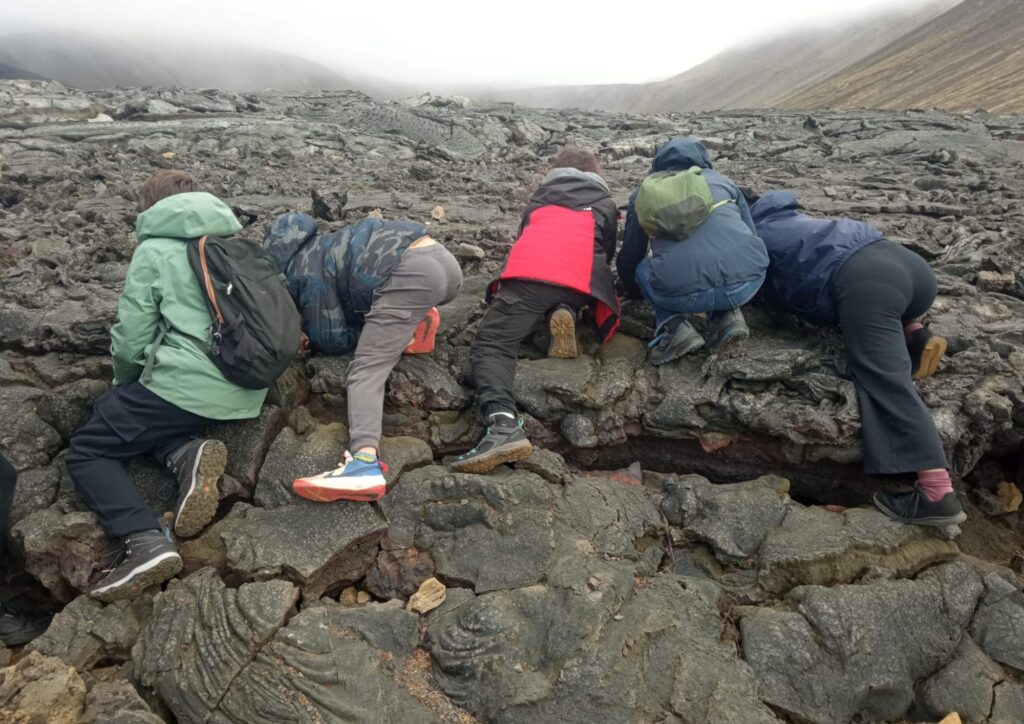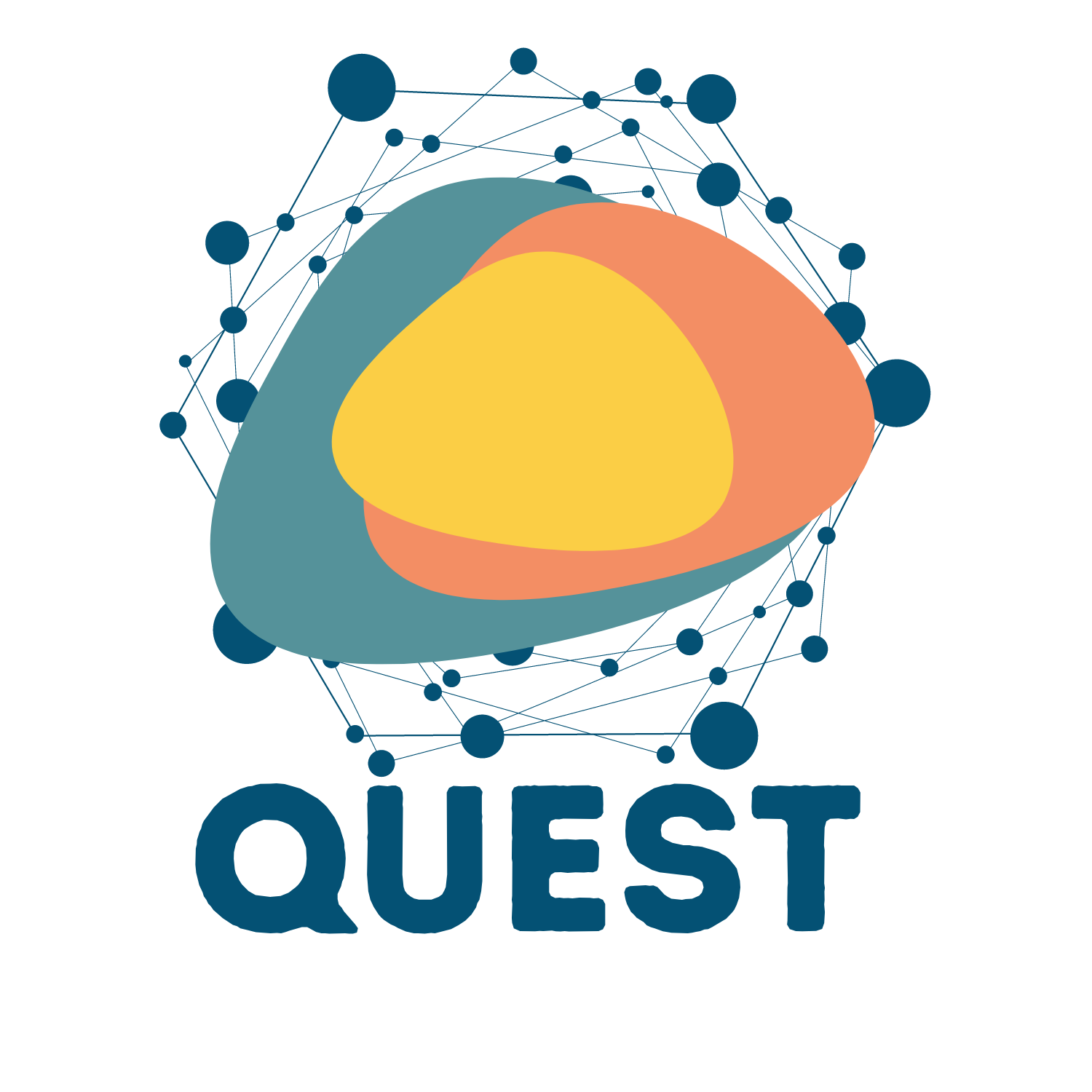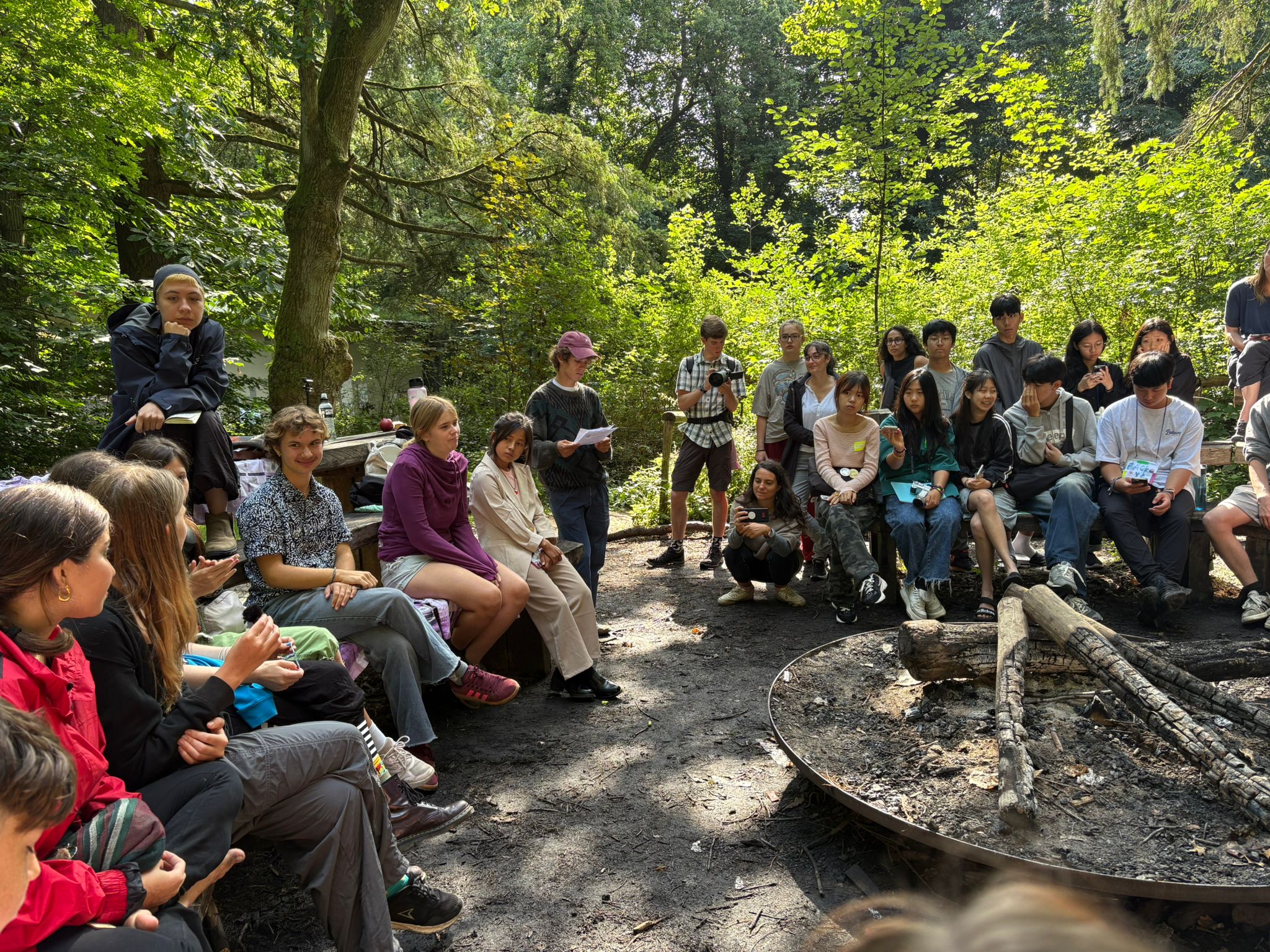Imagine entering a 21st-century classroom characterized by engagement and curiosity. Welcome to Inquiry-Based Learning (IBL), an educational approach that redefines the learning experience as a collaborative exploration. In this environment, students are not passive recipients of information; they actively engage as inquisitive seekers, driven by their desire to understand the world around them. IBL fosters critical thinking and collaboration, enabling students to question, investigate, and connect concepts, thus cultivating a deeper and more meaningful love of learning.

Understanding Inquiry-Based Learning
At its heart, Inquiry-Based Learning celebrates curiosity. It shifts the focus from simply accepting facts to actively formulating questions that lead to deeper understanding. Developed in the mid-20th century, Inquiry-Based Learning (IBL) has emerged as a fundamental teaching strategy in modern education, significantly influenced by various pedagogical theories that prioritize student engagement and active learning (Herman & Pinard, 2015). The roots of IBL can be traced back to progressive educational movements that sought to shift the focus from traditional, teacher-centered instruction to approaches that empower students as active participants in their learning journeys.

Inquiry-Based Learning (IBL) typically involves a cyclical process where students actively engage with the material to construct their own understanding (Alberta Education, 2004). This process begins with students formulating questions that spark their curiosity, followed by hands-on investigations to explore these questions. As students gather data, they analyze their findings, identifying patterns and connections. Finally, they share their insights through discussions or presentations, fostering engagement with their peers. By allowing students to explore real-world problems and scientific concepts, IBL makes learning more relevant and engaging. This approach, rooted in the philosophy that education begins with the learner’s curiosity, aligns seamlessly with the goal of promoting student agency and empowering learners to take charge of their educational journeys (Lee et al., 2004).
The outcomes of IBL extend beyond mere knowledge acquisition. Across numerous disciplines, research indicates that IBL often leads to better academic performance, higher motivation, and the development of key 21st-century skills like teamwork, communication, and creativity (Bruder & Prescott, 2013).
This improvement is attributed to the active engagement and ownership of learning that IBL encourages. Students develop critical skills such as problem-solving, collaboration, and self-directed learning, which are crucial for their future endeavors.
Moreover, IBL contributes to greater student satisfaction and motivation. When students are allowed to explore topics that genuinely interest them, their intrinsic motivation increases, leading to enhanced participation and persistence in their studies. This positive attitude toward learning significantly impacts their overall academic achievements (Graham et al., 2007).
The VOLT Project: Bringing IBL to Life through the Lens of Volcanoes
Inquiry-Based Learning (IBL) represents a transformative approach in science education that prioritizes student engagement and active participation. In Mathematics and Sciences, Wynne Harlen (2013) emphasizes the primary objective of IBL is to enhance student engagement and foster critical thinking skills in these specific disciplines, helping students understand complex scientific topics. Instead of just memorizing facts, students learn by asking questions, doing experiments, and analyzing results. This active involvement not only deepens their grasp of science but also nurtures curiosity and a desire to learn throughout their lives.
One of QUEST’s key initiatives that showcases IBL is the VOLT (Volcanoes as Teachers) project. Funded by Erasmus+, this project uses the exciting theme of volcanoes to engage students in learning important STEM (Science, Technology, Engineering, and Math) skills.
The VOLT project connects schools in volcanic regions—Greece, Iceland, and Italy—creating a network where students explore both the scientific and cultural aspects of volcanoes. Through international exchanges, students get to travel, work together, and participate in hands-on activities that link their studies to real-life phenomena.

By immersing students in the fascinating world of volcanoes, VOLT not only imparts vital STEM knowledge but also nurtures crucial soft skills such as collaboration, communication, and adaptability. Students from the three participating schools approached the study of volcanoes through their unique perspectives, driven by personal interests. Greek students, for example, explored the subject through an artistic lens, and wrapped up with a student-organized art exhibition that showcased their creative interpretations of volcanic themes. In contrast, Icelandic students focused on the geological aspects, delving into the scientific principles behind volcanic activity. Meanwhile, Italian students engaged in hands-on science experiments related to lava and magma, while also honing their video making skills to document volcanic landscapes.
Throughout the project, these diverse interests enriched the learning experience, adding depth and variety. The schools also reflected on the different mythologies surrounding volcanoes in their respective cultures, fostering a deeper understanding of how natural phenomena are perceived across various contexts. Through engaging hands-on activities, international exchanges, and creative projects, students are empowered to take charge of their learning journeys, deepening their understanding and igniting a passion for exploration and discovery.
IBL and Youth Participatory Action Research (YPAR)
In addition to Inquiry-Based Learning, QUEST champions another innovative approach: Youth Participatory Action Research (YPAR). Both methodologies share a foundational commitment to inquiry and student agency, but they diverge significantly in their focus, structure, and intended outcomes.
The main goal of Inquiry-Based Learning (IBL) is to help students develop knowledge, understanding, and transferable skills through active exploration and critical thinking. IBL is all about curiosity; it allows students to dive into topics that genuinely interest them, which encourages a lifelong love for learning and personal growth. The beauty of IBL lies in its flexibility; students can follow their interests, fostering a genuine love for learning. It is typically more individualized, allowing students to pursue their inquiries independently or in small groups, and encourages students to explore theoretical concepts and apply their learning in various contexts, but the connection to social change is not as explicitly emphasized as it is in YPAR.
On the other hand, Youth Participatory Action Research (YPAR) focuses on driving social change through collaborative research and action. YPAR invites students to tackle pressing community issues, giving them the chance to develop practical solutions. While IBL emphasizes personal exploration and academic growth, YPAR connects inquiry directly to social responsibility (Ozer & Piatt, 2018). This methodology not only sparks students’ interests but also encourages them to think critically about societal structures. In doing so, YPAR inspires them to take meaningful action in their communities, turning their learning into a catalyst for positive change. By combining personal inquiry with a commitment to social impact, YPAR empowers students to become active participants in shaping the world around them.
In fact, our YOU-CARE project exemplifies the synergy between IBL and YPAR. Focused on eco-anxiety among youth, YOU-CARE aims to create strong links between research, policy, and practice, enabling young people to understand and reclaim their emotions in the context of the ecological crisis and moving forward as actors of change by drafting policy recommendations aiming to tackle this phenomenon.
Challenges of Bringing IBL into Schools
However, despite these positive findings, putting IBL into practice comes with its own set of challenges. There’s a need for strong instructional support, effective teacher training, and creating environments that are conducive to this style of learning (Hinostroza, Armstrong-Gallegos & Villafaena, 2024). To effectively implement IBL, QUEST organized a training session for teachers as part of the VOLT project. This training gives teachers the tools and strategies they need to inspire curiosity and guide students through their explorations.
One significant challenge in adopting an IBL approach is understanding the power dynamics that exist within classrooms. Traditionally, teachers have acted as the sole authority figures, directing discussions and determining learning outcomes. While this structure can maintain order, it often limits student agency and involvement in their own learning processes.
To support educators in shifting towards a more IBL-friendly environment, QUEST introduced reflection tools, such as pre- and post-project questionnaires. These tools help teachers evaluate and adjust their classroom facilitation styles. By becoming more aware of how their interactions, instructions, and classroom setups impact students’ sense of ownership over their learning, teachers can create more equitable and collaborative environments.
This reflective process enables educators to recognize how power dynamics affect student participation, confidence, and willingness to take initiative. As teachers assess their roles and the learning environment they foster, they can implement incremental changes to their teaching styles. These adjustments can significantly strengthen the IBL framework, empowering students to take greater responsibility for their learning while ensuring they receive the necessary support.
Ultimately, by shifting the focus from teacher-led authority to a more collaborative and inclusive classroom dynamic, educators can cultivate an environment where students feel valued, engaged, and motivated to explore their interests and ideas. This transformation not only enhances student learning but also prepares them to become active, self-directed learners in the future.
Conclusion: Empowering the Next Generation Classroom through the VOLT Project
The VOLT case study highlights how Inquiry-Based Learning (IBL) can transform students’ educational experiences. By empowering learners to take ownership of their journey, IBL fosters intrinsic motivation and supports personal exploration. This aligns with QUEST’s commitment to democratic and sustainable education, promoting agency and meaningful engagement with real-world issues.
Through IBL, students develop the confidence and skills needed to navigate a complex world. The VOLT project exemplifies this by immersing students in the fascinating study of volcanoes, imparting essential STEM knowledge while nurturing collaboration, communication, and adaptability.
As students engage in hands-on activities and international exchanges, they not only deepen their understanding but also ignite a passion for discovery. QUEST is dedicated to cultivating a new generation of thinkers and problem-solvers prepared to tackle future challenges. The VOLT project reflects our commitment to fostering an environment where curiosity thrives and student agency flourishes.
REFERENCES:
Alberta Education. (2004). Inquiry-Based Learning.
Bruder, J. & Prescott, A. (2013). Inquiry-Based Learning: Evidence of Effectiveness.
Graham, K., et al. (2007). The Impact of Inquiry-Based Learning on Student Motivation.
Harlen, W. (2013). Inquiry-Based Learning in Science and Mathematics.
Herman, B. & Pinard, A. (2015). The Role of Curiosity in Inquiry-Based Learning.
Hinostroza, J. E., Armstrong-Gallegos, L., & Villafaena, J. (2024). Challenges in Implementing Inquiry-Based Learning.
Lee, H., et al. (2004). The Philosophy of Inquiry-Based Education.
Ozer, E. J. & Piatt, A. (2018). Youth Participatory Action Research: Connecting Inquiry to Social Change.




